Search
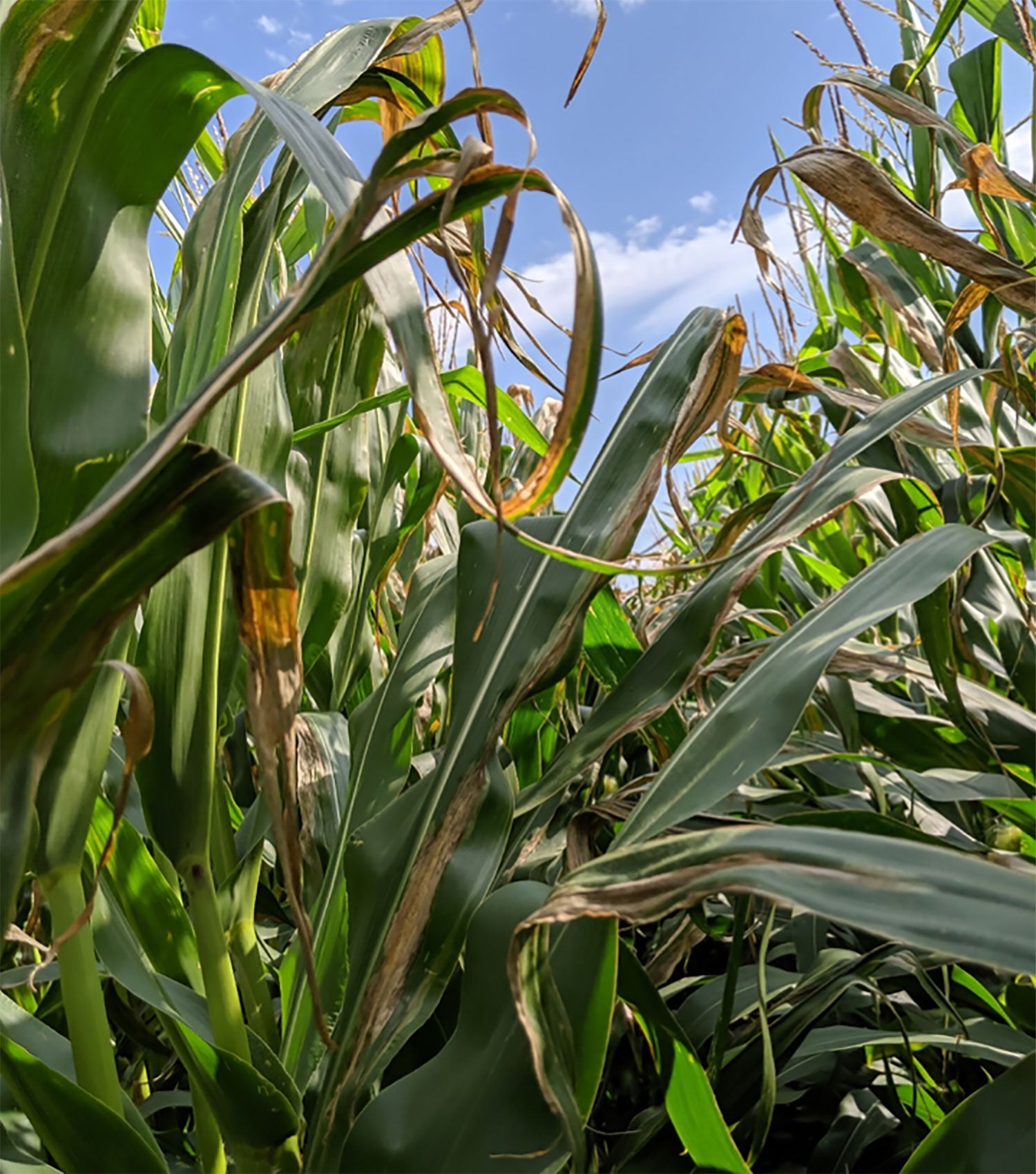
Goss’s Bacterial Blight Beginning to Show Up in Corn
Goss’s bacterial blight was found in a few corn fields scouted the week of August 5, 2019. The severity ranged from low to moderate, where at least 25 percent of the leaf area was killed by the bacteria infection on several plants. The disease is characterized by long, tan-gray lesions with wavy margins found in the center of the leaf or along the edges of the corn leaf blade.
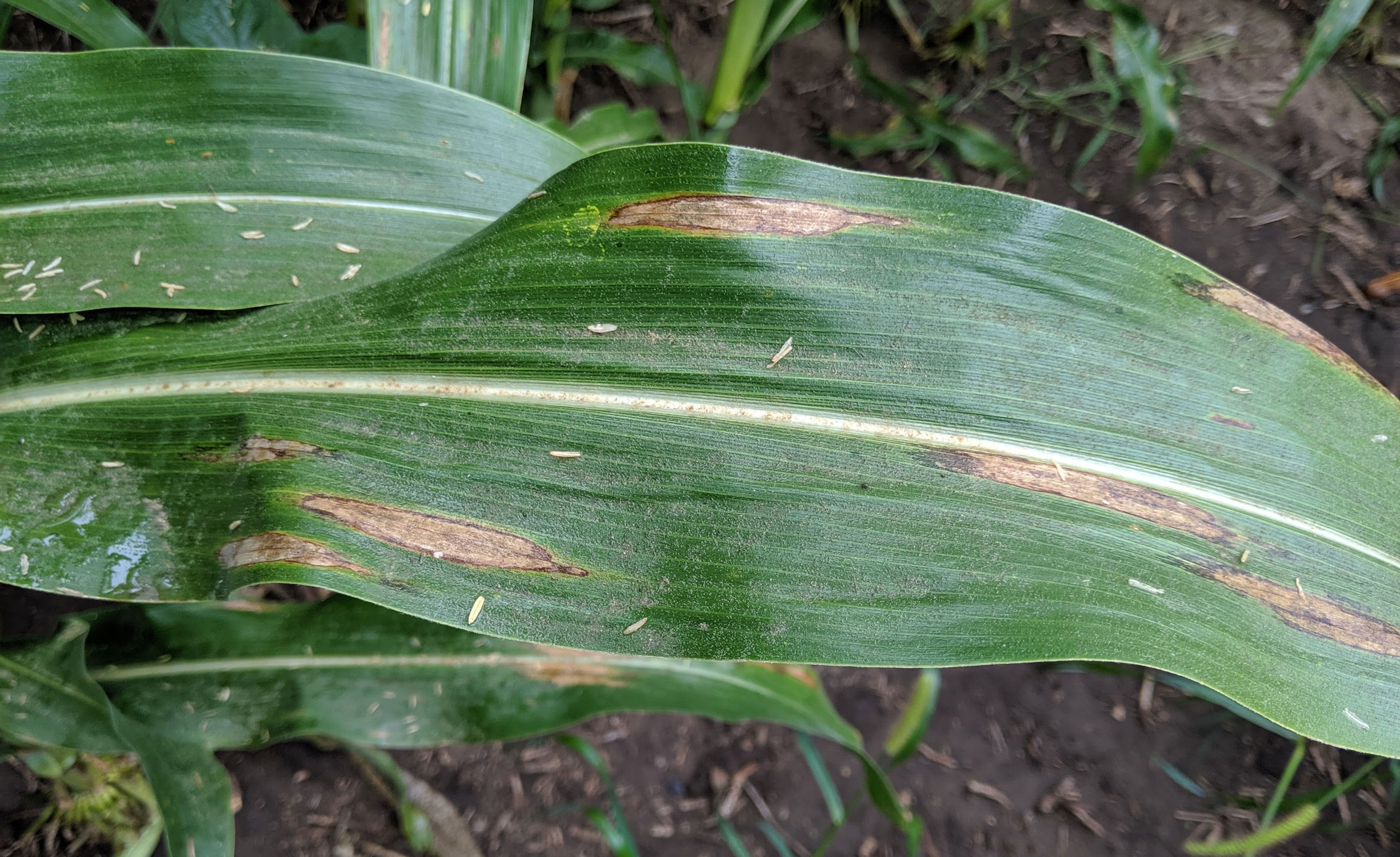
Northern Corn Leaf Blight Developing in Corn
Northern corn leaf blight was found in a few corn fields scouted recently. The disease was found at very low severity, except occasionally when an individual plant was found with several lesions on one leaf.
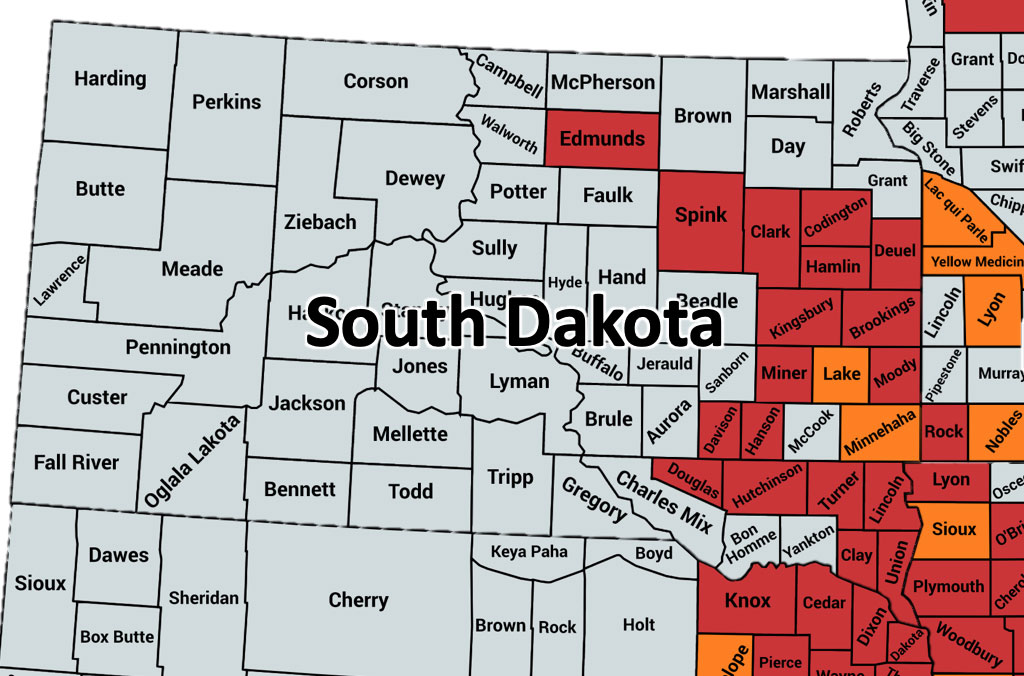
Soybean Gall Midge Showing Up in More Counties
As the season continues, so is our soybean gall midge scouting efforts. For much of South Dakota, the soybean that are infested with soybean gall midge are asymptomatic. That is, they show limited signs of infestation, but we can still find the larvae of the soybean gall midge in the stems.
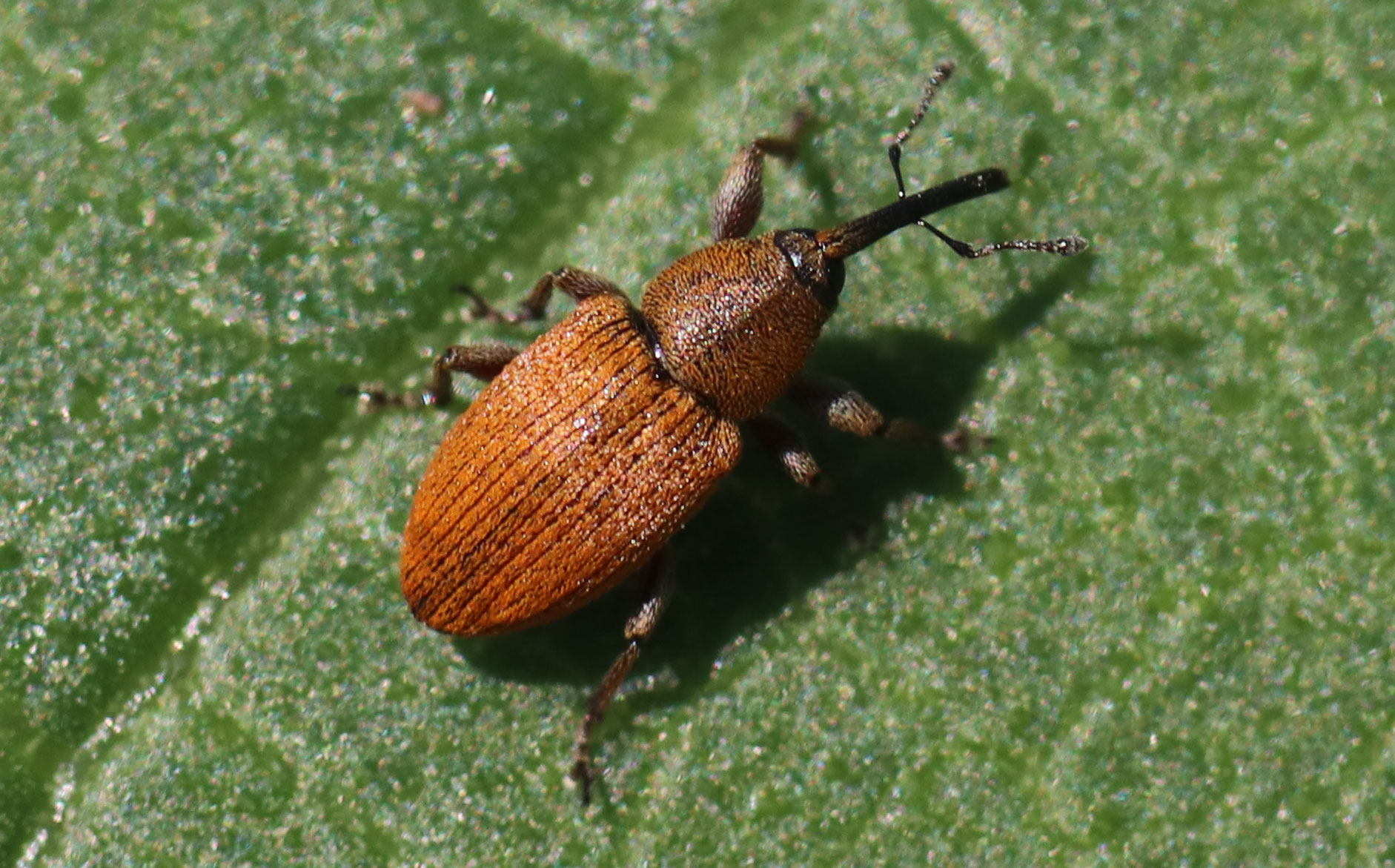
Watch for Red Sunflower Seed Weevils
In South Dakota, sunflower flowering is well underway. That means it is time to start scouting fields for red sunflower seed weevils. During the last two years, red sunflower seed weevil populations have been higher than normal with areas that exceeded the thresholds by as many as 300-500 adults per sunflower head.
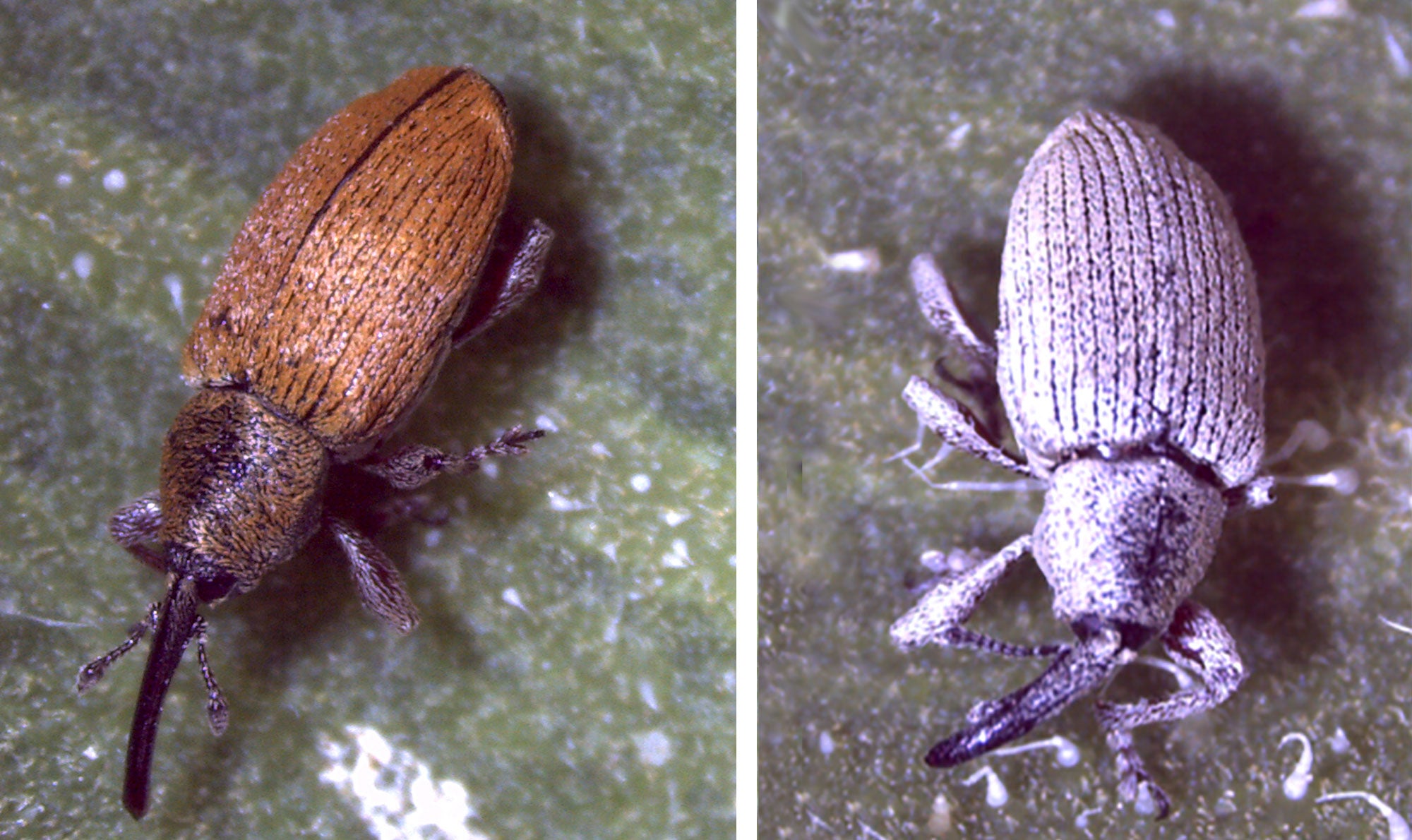
Differentiating Two Species of Sunflower Seed Weevils
While scouting sunflower, there are two types of seed weevils that you may encounter. They are the red sunflower seed weevil and the gray sunflower seed weevil. It is possible to observe both of these species on a single sunflower head.
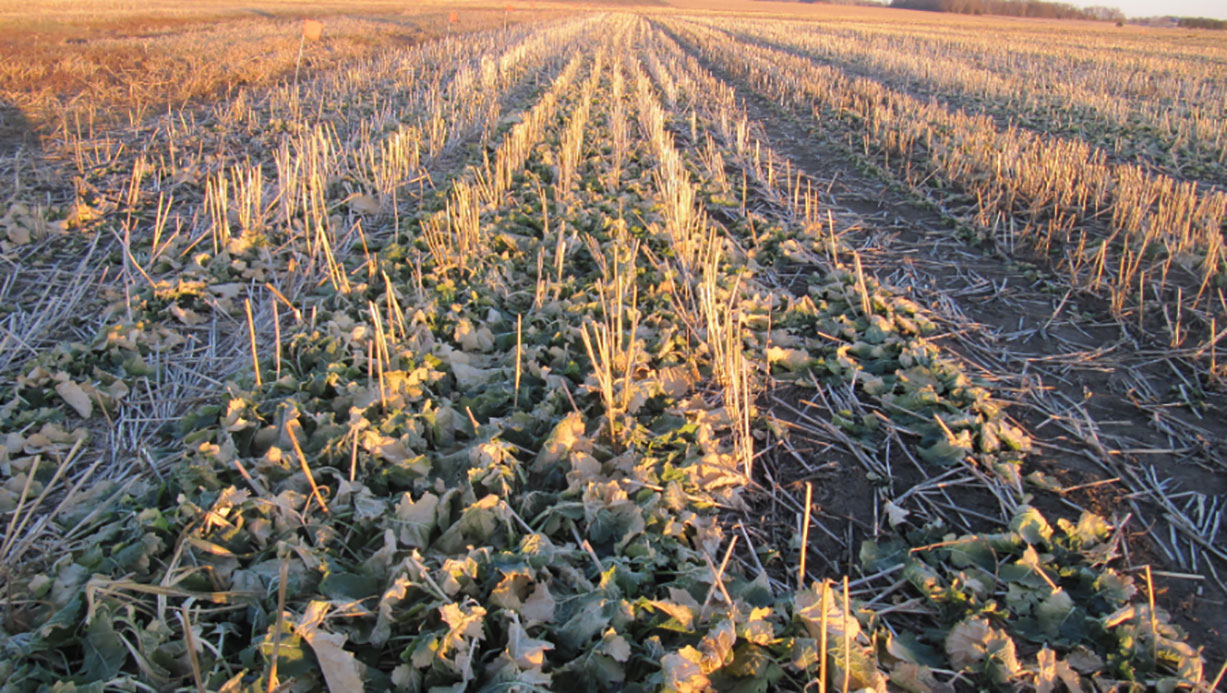
Cover Crops After Small Grains
In last few years, interest in using cover crops has been increasing tremendously among crop and livestock producers in South Dakota. Growing cover crops following small grain is gaining more attention due to feasibility in cover crops species selection and also the time of the year where cover crops receive longer growing and establishing time than following row crops.
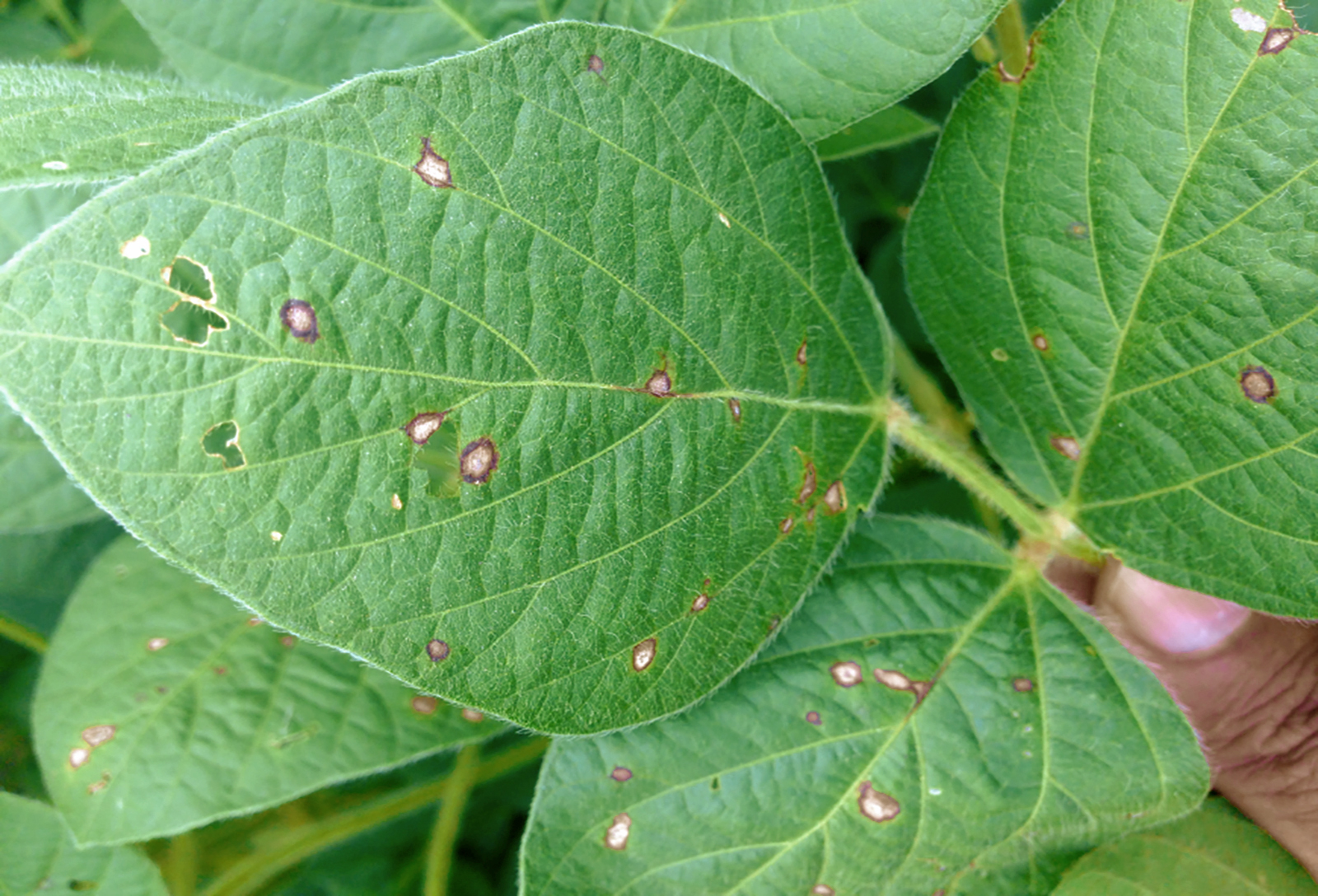
Frogeye Leaf Spot Developing in Soybeans
Frogeye leaf spot, also known as Cercospora leaf spot, was found in several soybean fields scouted the week of August 19, 2019. Frogeye leaf spot is characterized by irregular to circular lesions, which are tan-to-gray in color with reddish-purplish borders.
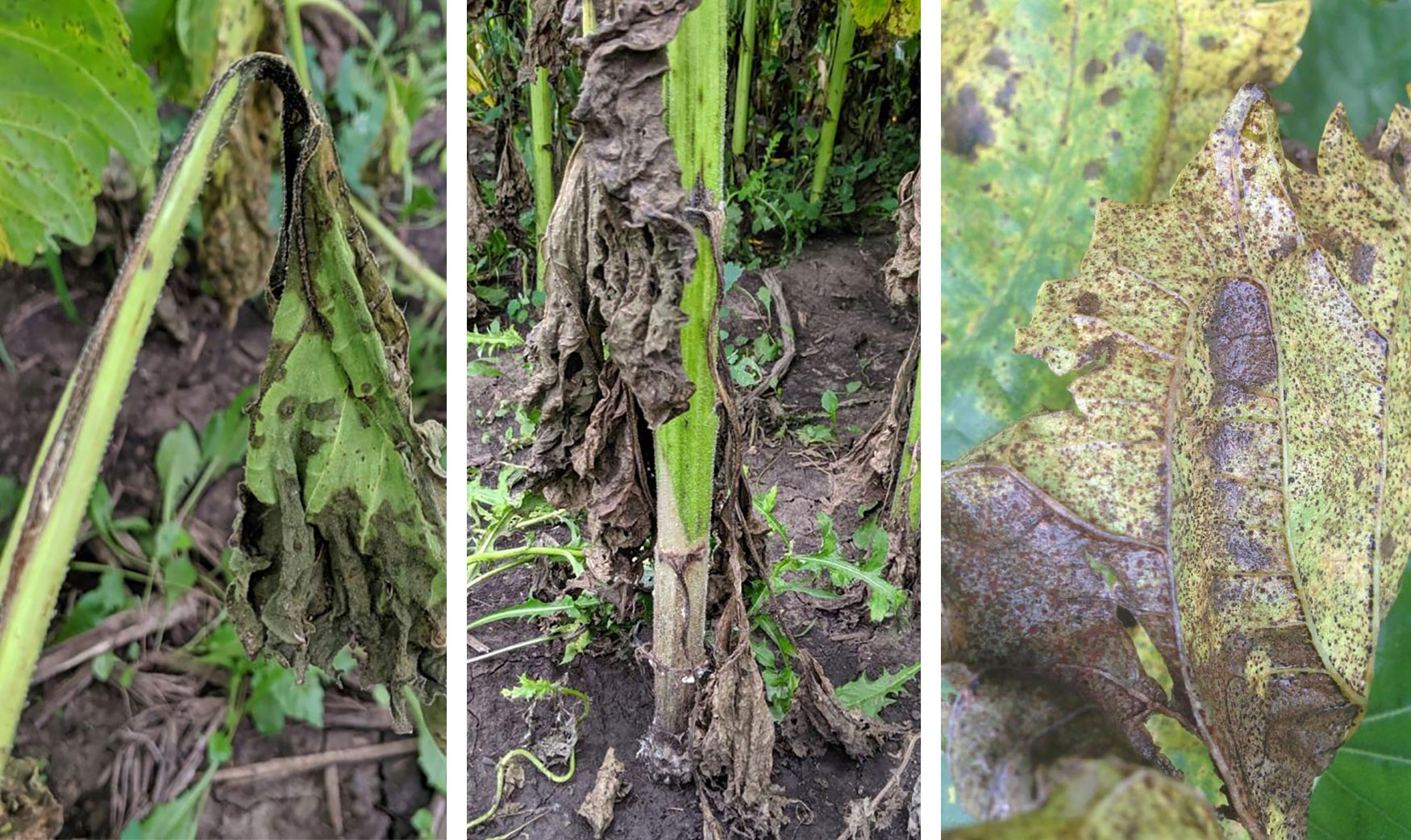
Bacterial Stem Rot, Sclerotinia Basal Rot and Sunflower Rust Developing in Sunflower
Sunflower scouted this week in Brookings and Kingsbury counties were found with bacterial stem rot, Sclerotinia basal rot and sunflower rust. This area has had plenty of moisture, which favors several diseases to develop in sunflower.
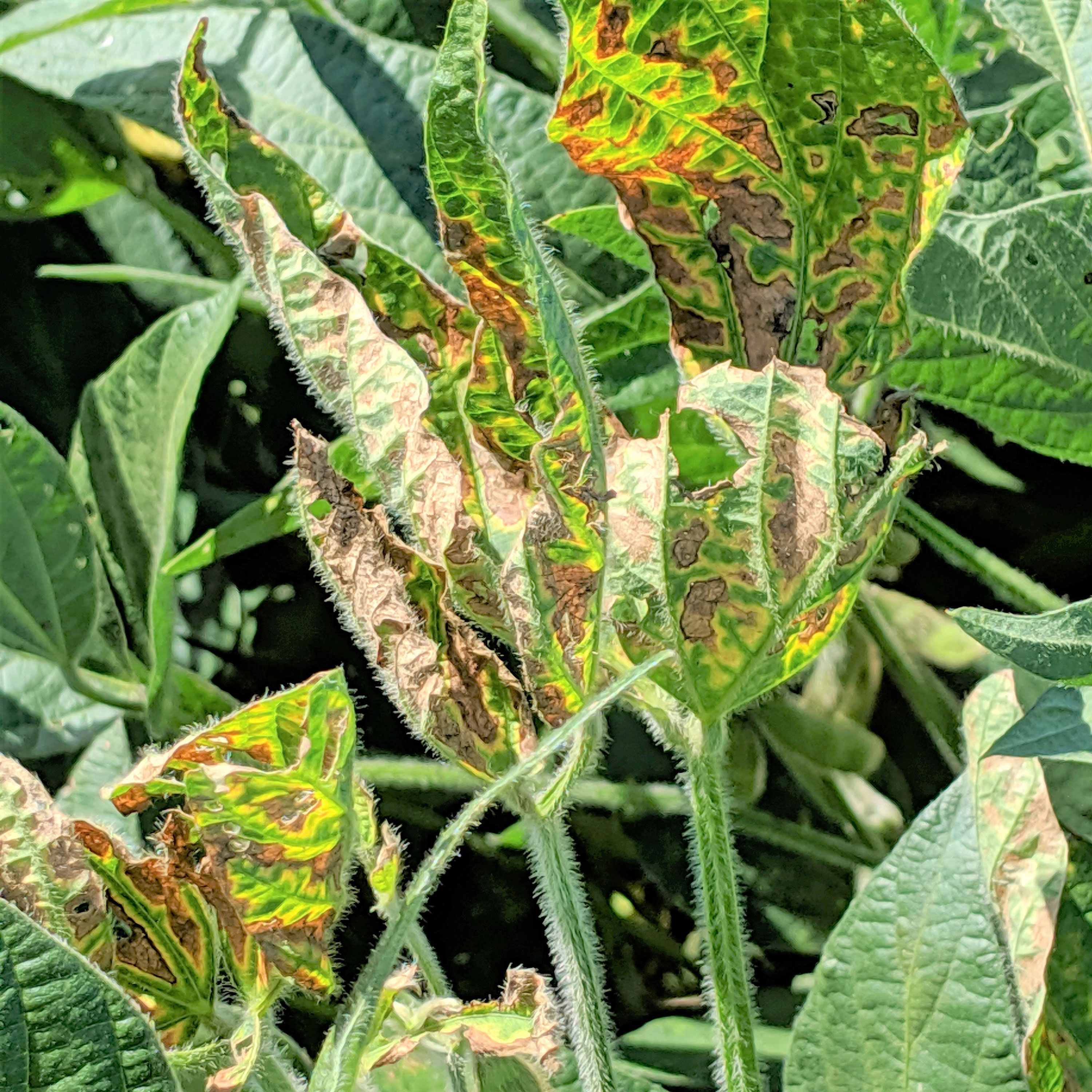
Sudden Death Syndrome Starting to Develop in Soybeans
Sudden death syndrome of soybean is starting to develop in soybean fields in South Dakota. Fields currently being found with sudden death syndrome have symptomatic plants scattered within the field, but continued disease development may lead to larger clusters of infected plants.
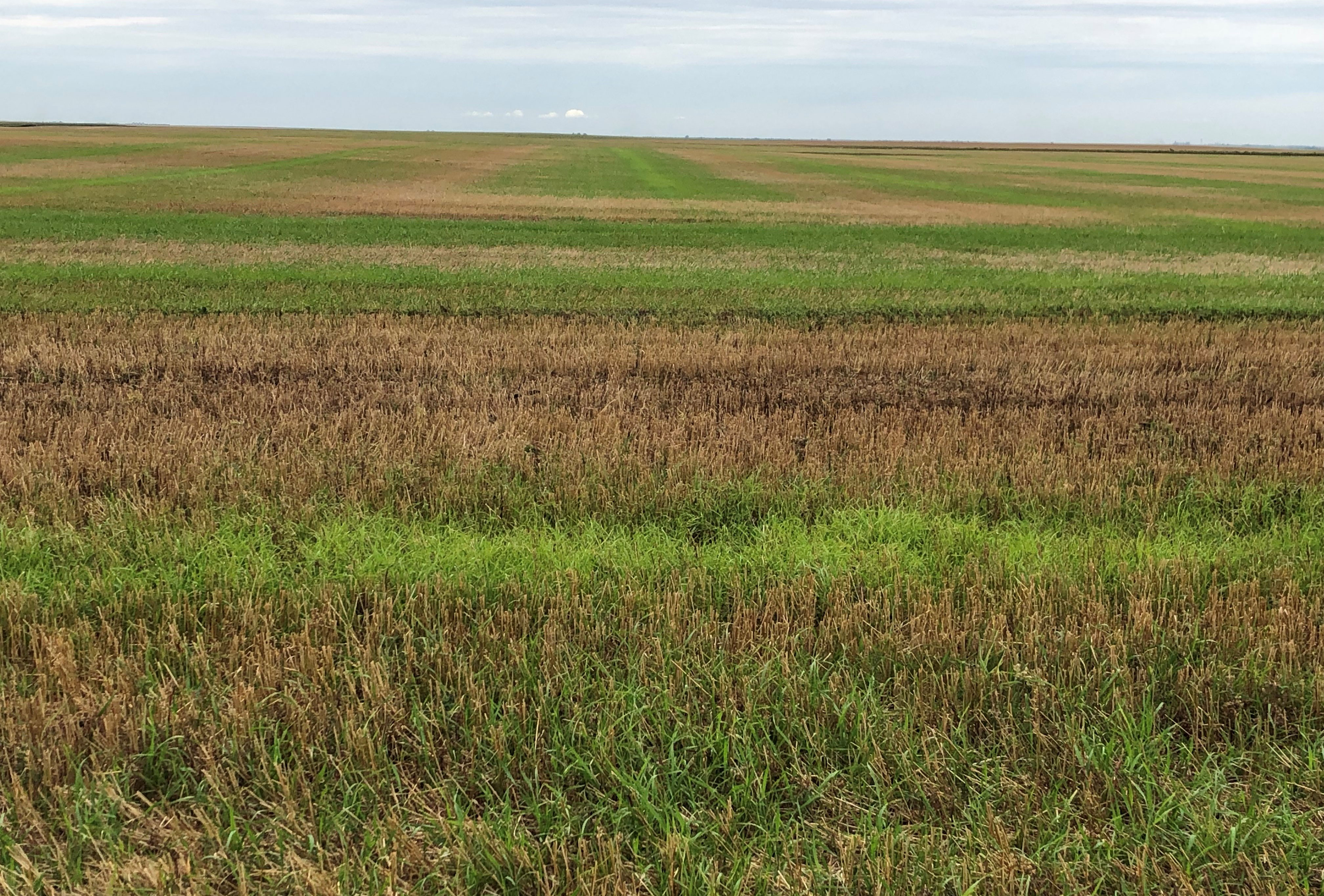
Winter Wheat Decisions
Winter wheat planting will soon be starting and a number of decisions will have to be made for a successful winter wheat crop, including: the time of planting, the choice of variety to be planted, disease and pest management decisions and crop insurance.